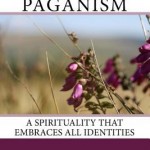I am currently reading a biography of C S Lewis by Alister McGrath. In the chapter on Lewis’ Christian faith, McGrath argues that Lewis came to believe in God because he recognised that there was something he desired that was always out of reach. This “argument from desire” occurs in Lewis’ well-known sermon The Weight of Glory; in his first novel, The Pilgrim’s Regress; and in his autobiographical work, Surprised by Joy. This desire is not simply a want, or a need for wish-fulfilment; it is not a craving for a particular transitory experience; indeed, it can be occasioned by a fleeting glimpse of beauty or transcendence. It is a desire for connection with, or experience of, the divine (which, for Lewis, came to mean the Christian God). The “argument from desire” is that we all have a “God-shaped hole” in consciousness, which can only be filled by the divine. Lewis writes (in The Weight of Glory):
The books or the music in which we thought the beauty was located will betray us if we trust to them; it was not in them, it only came through them, and what came through them was longing. These things—the beauty, the memory of our own past—are good images of what we really desire; but if they are mistaken for the thing itself they turn into dumb idols, breaking the hearts of their worshippers. For they are not the thing itself; they are only the scent of a flower we have not found, the echo of a tune we have not heard, news from a country we have never yet visited. Do you think I am trying to weave a spell? Perhaps I am; but remember your fairy tales. Spells are used for breaking enchantments as well as for inducing them.
Can this concept have any meaning in a Pagan context? What is it that Pagans desire? For one thing, most Pagans believe that the divine (whether it is perceived as a single underlying energy, or as many deities) is immanent in the world, and therefore available to our experience in the here and now. So that is a key point where we differ from Lewis, who may well have seen the divine as both immanent and transcendent, but certainly thought that a full experience of it would only be available after death.
For many of us, Nature does not merely reflect the divine glory: she is the Divine glory – in all her contrary moods and states. And we can experience the divine directly. As we have only finite and local consciousness, we cannot fully apprehend the (presumed) infinite and non-local consciousness of deities, but we can participate in it. That is one of the purposes of magic (in my opinion). I believe that the goal of existence is not to divorce spirit from matter, but to awaken matter to its full potential; to divinize it, if you like.
The aim of my personal Pagan path is to become divine, to achieve apotheosis (not to merge with the underlying divine energy, but to be infused with it). I think this will take several lifetimes, but I believe it is possible. The only obstacle on this path is one of perception. As Blake put it, “If the doors of perception were cleansed, everything would appear as it is, infinite.”
I do think that the “argument from desire” is quite a good argument for the existence of deities – but I do not think it is a desire for a realm that is beyond the world (ontological transcendence); rather I think it is a desire to connect with something beyond the ego, something larger, deeper, broader that already exists in our own depths and connects with all that is (epistemological transcendence).
Lewis argues (in The Weight of Glory) that every activity has its proper reward, and every desire has its fulfilment. It is mercenary to desire “the reward which has no natural connexion with the things you do to earn it, and is quite foreign to the desires that ought to accompany those things”; but it is not mercenary to desire the proper reward of the action. The example he gives is that if someone marries for money, that is mercenary; but if they marry for love, it is not – because marriage is the proper reward of love.
In the same way, the fulfilment proper to existence is to encounter it fully; to experience it as the divine beloved. From my personal Pagan perspective, this does not mean to dissolve the self in the great all, but to experience the hieros gamos (sacred marriage) in one’s own depths, between the finite and the infinite, between manifest and unmanifest, matter and spirit.
From a polytheist perspective, even if one believes (as I do) in a single substance or energy from which all other entities (deities, spirits, humans and other animals, genii loci, etc) emerge, the underlying energy is plural and diverse, and so we cannot dissolve into it, and nor would it be desirable to do so (and interestingly, this is not the goal of Christian spirituality either). Becoming infused with it is not the same as losing our identity within it.
So yes, we desire meaning, joy, fulfilment, and the sacred marriage; and we can have them in the here and now, and they can be found through many spiritual traditions. But it does seem that there must be something (however we perceive it) that our desire is fixed upon – the goal of our desire is not merely imaginary.
















